QuestionQUESTION: I have a male belgian malinois dog. He is about 11 months. When he was given to me at around 6 months, he was fearful and frightened, eventually he overcame that. After he became more sociable to me, i started walking him, however there are dogs in the neighborhood that exhibit territorial aggression and he was fearful of trucks and cars. As time passed, he became more confident but his fear still persisted. After around 2 months, he started having territorial aggression in my house towards my strangers approaching my house. The event was sudden but gradual. Now he, barks and growls at anyone approaching my house. Thankfully though, when i walk him it's as if it he never was aggressive. I understand this is typical for dogs because i kept reading on the net. But the complication is that this is not my only dog. I also have a 2 dauchhound, 1 basset hound and a Lab. All of them are usually bark at strangers but they don't try to bite. Meanwhile, for my Belgian Malinois, he will growl, bark and try to bite. PS: he has a nozzle and he is the youngest of all my dogs.
ANSWER: by "nozzle", do you mean muzzle????
Your dog is demonstrating fear aggression, NOT dominance. The Belgian Malinois is a powerfully protective independent guarding breed and was used for purposes of war, and presently for guarding, all over Europe (and the US and Canada.) Fear in any dog can be the product of several factors: poor socialization, conditioned fear response, inherited factors. I have no way of knowing (nor do you) which of these is the problem with your dog. Any dominance in this dog's behavior would be confined to your other dogs: I can't see that from here. I can help you deal with this front door "stranger" aggression, but I need more information. Please answer the following questions:
1. Have you done any obedience work with this dog and, if so, what sort and how has he responded to it?
2. What DO YOU do if he shows fear on leash outdoors?
3. What sort of relationship does he have with your other dogs (and what sex are they?)
4. How has his front door stranger aggression affected the other dogs (if at all)?
5. Whom has he bitten, under what circumstances, how often has he bitten, what sort of bites were they? Describe fully.
6. What do YOU DO when he growls at the door and what was your response when he bit?
Thank you.
---------- FOLLOW-UP ----------
QUESTION: yea muzzle sorry.
1.I did informal obedience training, the sit and down only. he responds to these only if there's food and if I am near him. If i am a half a meter away from his cage, he will not follow my cue.
2.if he shows fear on leash outdoors i don't mind his fear. I don't give him affection instead, I ignore it.
3.the all are female except for 1 dauchhound.
4.I think its more like the others affected him rather than he to them. Cause whenever the other dogs bark, that's the time he barks. However my problem is the other dogs stop barking or at the very least don't try to bite.
5. He has bitten only once. I was outside my garage then suddenly some new stranger startled him. He bit my maid. I think this was out of fear. The bite never had a wound only a bruise. After that, i used the muzzle to try to avoid any other bites.
6.a) If he growls at the door i just startle him with a sound or use a stick to "touch" and distract him. However, even after i did this he will just resume.
6.b) My immediate response when he bit, was nothing. Although i was startled and alarmed, i didn't comfort the dog nor punish him. I told my maid it was not the dog's fault but the one who startled him.
:::Now I'm trying clicker training, hope it works in stabilizing his mental state
ANSWER: GOOD for the clicker training!! Use it wisely; learn about it thoroughly. He may be AFRAID OF THE SOUND; "charge" the clicker when it's in your pocket. That's what I would if I were conditioning this dog to the clicker. I don't know what you meant when you said "if i am a half a meter away from his cage". Are you training him when he is IN his crate? or tied to it?? If so, forget it. The dog needs to be trained throughout the house, in every room, or he will attach his learned behavior to the spot he is accustomed to be in for training and not respond elsewhere.
This dog is already afraid of strangers; startling him (or using a stick) is only worsening his fear at the front door and he has begun to generalize this fear to other places, not just the front door, as you describe the incident when you were in the garage and the dog redirected his aggression to the maid. A "bruise" is the second stage of active dog to human aggression (the first being growling or serious display of aggressive barking); the next stage is a puncture. Your dog has lost his BITE INHIBITION. This is NOT GOOD. This is a situation that calls for in person evaluation and behavior modification by a certified applied animal behaviorist (NOT a dog trainer!) Find one by contacting the veterinary college in your area or calling around to high end veterinary hospitals. If you're in Britain, contact the Association of Pet Behaviour Counselors.
Meanwhile, since your dog does not demonstrate any fear aggression toward strangers when out on leash with you, keep this dog on short, strong nylon leash when you expect visitors. You can do a set up with a neighbor or friend: once your dog has obtained a strong, 100% successful performance to your command for "sit" (train him with a new word for sit and for down, make them up), once the doorbell rings (and your other dogs bark and stop at your command) make him "sit" before opening the door; if he breaks, close the door (without admitting the stranger); keep this up until he holds the sit. Then have the stranger enter and totally ignore him. The dog KNOWS he is muzzled (I don't blame you for doing this as a precaution) and the muzzle can actually increase the dog's heightened alarm. This makes treatment all the more difficult and it's all the more reason you absolutely need a professional.
---------- FOLLOW-UP ----------
QUESTION: I have another questions. When this my dog was given to me as a puppy he never understood bite inhibition. He always nips at people at the age of 6 months and till now he nips at my pants and my hands. His pressure is bearable however i feel the bite. There are no scars or punctures only red marks. Is it still applicable to try the puppy bite inhibition training but with the modification that I always yelp whenever he tries to nip at me at all times? Because I currently don't think i can find a certified dog behaviorist in my country. Although this is temporary until i find one. Also is it already too late for him to learn bite inhibition?
AnswerEvery dog has bite inhibition providing it has been socialized to perceive humans as created conspecifics. The degree of bite inhibition is determined by many factors. The nipping you speak of is normal puppy behavior, especially in the guarding and herding breeds; when a puppy demonstrates this, yelping and moving away ALWAYS stops the nipping; the puppy learns (as it does with his littermates) that teeth HURT. I would offer the yelp and move away QUICKLY every time he nips at you. This nipping is NOT aggression and its contribution to loss of bite inhibition is minimal, although encouraging a dog to use his teeth in interaction with you DOES facilitate the loss of bite inhibition. Your dog has lost bite inhibition because he has ACTUALLY aggressed toward a human being and bitten her. This was NOT a playful nip, this was active dog to human aggression. you do not have sufficient knowledge to work with this dog. You MUST at LEAST read and study BEFORE ATTEMPTING ANYTHING or you will make the situation worse. ClickerTraining.com for positive reinforcement training, Patricia McConnell, Ph.D. for dogs with serious behavior problems, John Fisher's "Think Dog" for a primer on dog psychology. You're playing with dynamite; the dog is confused and frightened and has no clear leadership; he is actively aggressive and this will get worse. If you don't act appropriately, the dog will lose his life because he will hurt someone. You are also clearly afraid of him and he knows it. I don't know what country you live in but unless it's the plains of Africa, there must be at least one educated professional in domestic dog behavior that you can locate!

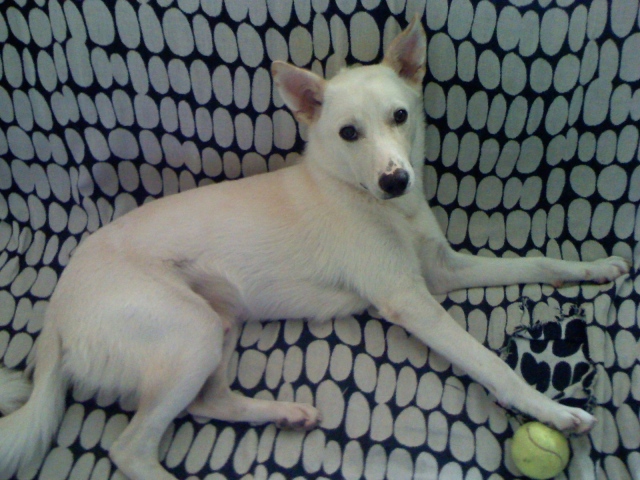 Dog walking problems
Question
Snickers
I have been trying to train my dog SN
Dog walking problems
Question
Snickers
I have been trying to train my dog SN
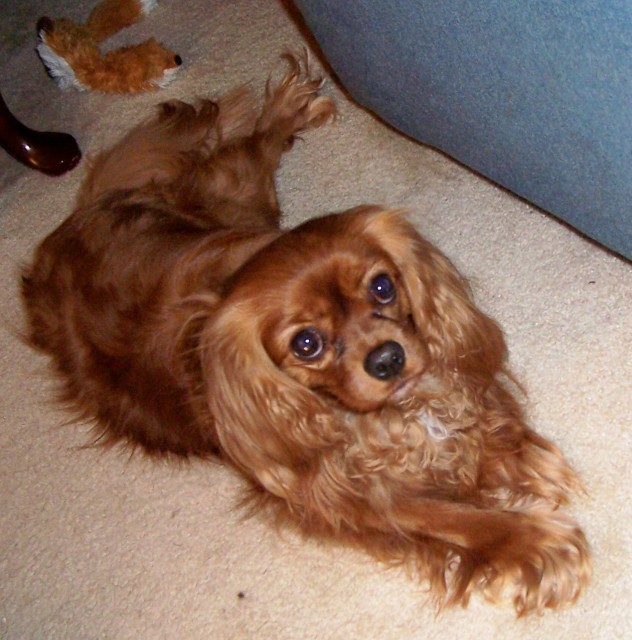 Dog light and shadow chasing
Question
Jenni
My 3 year old Cavalier King Charles Span
Dog light and shadow chasing
Question
Jenni
My 3 year old Cavalier King Charles Span
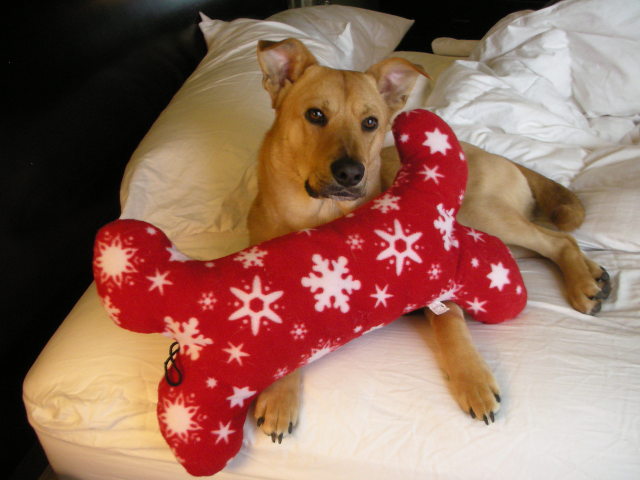 Very Scared Dog
Question
Happy
My dog is 17 months old and is a mixed b
Very Scared Dog
Question
Happy
My dog is 17 months old and is a mixed b
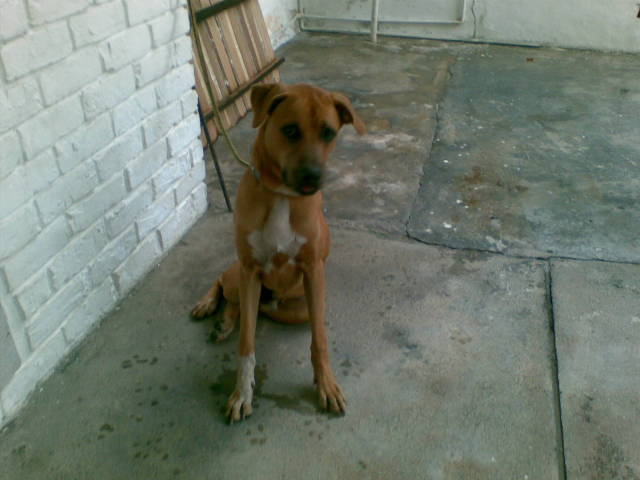 dogs behaviour
QuestionMy 8 months old Dusto
QUESTION: My puppy
dogs behaviour
QuestionMy 8 months old Dusto
QUESTION: My puppy
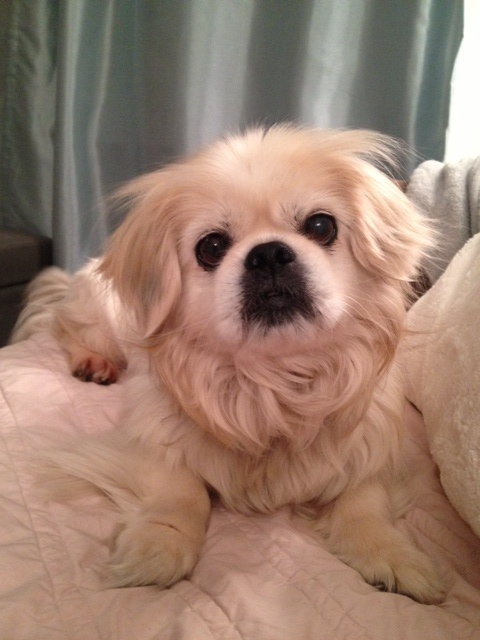 Nightmares?
Question
Beethoven
Hi Melissa, Ive had my very h
Nightmares?
Question
Beethoven
Hi Melissa, Ive had my very h